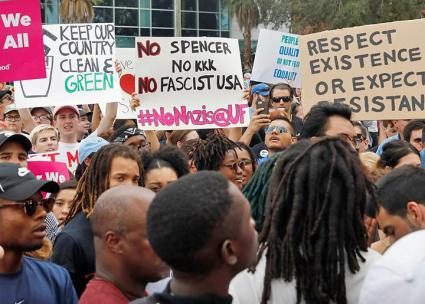
Freedom of expression has been a central value in American society since our nation’s founding. For just as long, Americans have debated about what free speech means and under what circumstances it might legitimately be constrained. Most people agree both that it is important to permit broad freedom of expression and also that in some cases, individual rights to free speech can be limited in order to protect broader social goods. However, people differ sharply on what kinds of speech should be curtailed and which goods can override individual expression. This issue has come to the center of the public sphere with recent debates in which the value of individual liberty appears to conflict with the equally important American value of racial justice and equity. Some of the most heated conversations have concerned the rights of athletes such as Colin Kaepernick to protest racist violence publicly. An equally volatile debate has raged over the visits of far-right figures such as Richard Spencer and Milo Yiannapoulos to public university campuses. Here at UF, Spencer’s visit in October 2017 prompted vigorous debates about questions at the heart of our approach to free speech in the public sphere: Should hate speech be given a public venue? How should universities and local communities respond? How can communities in and American society more broadly do justice to our shared moral commitments to freedom of expression and racial justice? And how do both these values contribute to our common good?